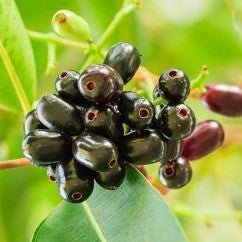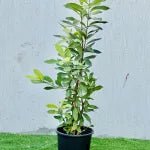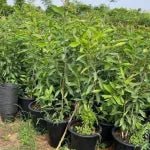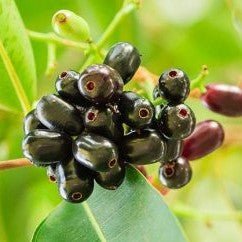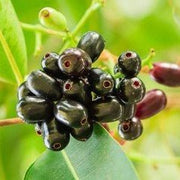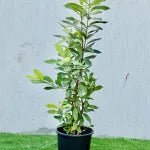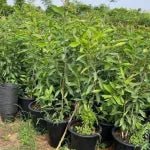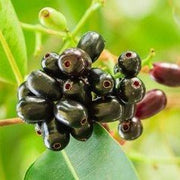Jamun Black Plum Tree - Fresh and Juicy Fruit from Jambolan Tree
Free returns on all eligible orders
You have 7 days to request a return. All sale items are final sale.
🌳 Black Plum Tree (Syzygium cumini)
Also known as Jamun, Java Plum, Indian Blackberry, or Malabar Plum, this tropical tree comes from India and Southeast Asia.
🔍 Quick Facts
-
Height: Up to 30 meters (100 feet)
-
Width: Spreads 15–20 meters
-
Leaves: Start pink, turn dark green with yellow centers; smell like turpentine
-
Flowers: Small, white, and fragrant (bloom in March–April)
-
Fruit: Oval-shaped; green when unripe, black when ripe; juicy, sweet, and tangy
🌿 Uses & Benefits
-
Fruit: Eaten fresh or made into jam, juice, or pickles
-
Wood: Strong and water-resistant; great for furniture and buildings
-
Medicinal: Used to help with diabetes, digestion, and skin problems
-
Animal Feed: Leaves are nutritious for livestock
-
Wildlife: Offers food and shelter to birds, bats, and small animals
🌎 Growing Conditions
| Feature | Tolerance/Requirement |
|---|---|
| Drought | Medium |
| Salinity | Medium |
| Sunlight | High |
| Wind | Medium |
| Water | Medium |
| Soil pH | Basic |
| Pests | High resistance |
| Diseases | High resistance |
| Growth Rate | Medium |
| Fragrance | None |
🌱 Why It Matters
The Black Plum Tree is more than just pretty — it’s nutritious, useful, and eco-friendly. Its fruit is tasty, its wood is tough, and its leaves and shade support both people and animals. Whether for food, medicine, or sustainability, the Jamun tree is a true gift from nature.

